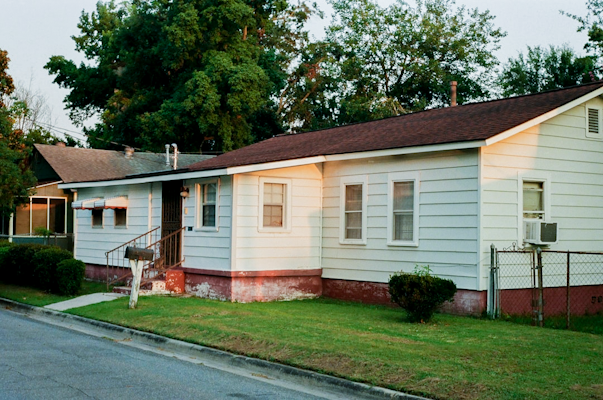Selling a mobile home isn’t simply a transaction; it’s a strategic process that hinges on timing, presentation, and planning. While the housing market can vary significantly depending on location, seasonal shifts, and economic conditions, choosing the right moment to sell your mobile home can impact both the speed of your sale and the final price you receive.
Timing your sale means looking beyond what’s happening nationally. Local demand, park policies, and even weather conditions influence how your home will be viewed by potential buyers. Knowing what to expect allows you to avoid common missteps and maximize the return on your investment.
Understanding the Seasonal Market Shifts
One of the first things to consider is how the time of year affects buying behavior. Spring and early summer often bring a surge of interest in housing across many parts of the country. This is especially true for mobile homes in family-friendly parks or near recreational areas. Buyers want to settle before school starts or enjoy their new home during the warmer months.
In contrast, late fall and winter typically bring a slowdown. Inclement weather, holidays, and school schedules can limit mobility and interest. But there are exceptions. In warmer climates or locations with a strong snowbird population, the cooler months might actually boost demand. This dynamic means you must align your marketing strategy with the audience in your region.
Plus, you should keep an eye on local trends. Some communities see an influx of workers during specific seasons, which temporarily raises housing demand. Keeping tabs on these cycles can help pinpoint the ideal window for listing your mobile home.
Evaluating Market Conditions in Your Area
Beyond seasonal timing, the general health of the local housing market plays a role in how easily a mobile home sells. Are homes sitting for weeks with multiple price reductions, or are they disappearing in days? Research nearby listings to get a sense of pricing, buyer interest, and inventory turnover.
Local real estate agents or mobile home brokers can provide insights into the current market dynamics. You might find that mobile home sales in your area are influenced by zoning changes, economic development projects, or increased demand for affordable housing. These factors can change quickly, so staying informed matters.
Mortgage interest rates, while not always directly linked to mobile home sales, still affect buyer behavior. When rates rise, buyers become more cautious. When rates drop, demand tends to increase.
Exploring Off-Market Options
Sometimes the fastest route to a sale isn’t listing publicly at all. There are investors and specialized buyers who look for mobile homes as rental properties or fix-and-flip opportunities. If you’re looking for convenience and speed, this route may be ideal.
It’s worth noting that pricing may reflect the trade-off between ease and market value. Still, if you’re on a tight timeline, you can get an offer for your mobile home without the need for open houses or online marketing. This option appeals to sellers with limited time or resources to prepare the property extensively.
Consider obtaining multiple quotes before agreeing to terms. You want to ensure that the deal is fair and that the buyer has the means to close quickly. Some companies provide cash offers within days, making this an appealing option in the right circumstances.
Preparing the Property for Sale
Once you’ve determined a favorable time frame, preparation becomes the next critical phase. A mobile home that presents well stands a much better chance of attracting serious buyers quickly. This doesn’t always mean full renovations. Sometimes, small updates, like fresh paint, new hardware, or landscaping improvements, create a strong first impression.
Don’t overlook structural integrity or compliance with park guidelines. Many mobile home parks require specific exterior standards or have rules about lot transfers. Ensuring that your home meets these expectations helps avoid last-minute deal complications.
Interior cleanliness, modern touches, and minor repairs can make a big difference. If buyers feel that the home is well-maintained, they’re more likely to make a confident offer. Photographs and listing descriptions should reflect this care.
Navigating Legal and Financial Requirements
Selling a mobile home requires specific legal steps, and these vary by state. Title transfers, inspections, and disclosures must be handled properly. In some cases, you may need to confirm whether the land is included in the sale or if the home is situated on rented property.
When the mobile home is in a park, you might need to provide information about lot rent, community policies, or required background checks for incoming residents. Failing to do so early in the process could cause delays or even cost you the sale.
If you still owe money on the home, you’ll need to pay off the balance or negotiate with the lender. This can complicate the timeline, so start gathering those details as soon as you decide to sell.
Deciding Whether to Sell by Owner or Through a Professional
There are advantages and drawbacks to both for-sale-by-owner and working with a real estate professional. Selling on your own saves on commission, but you’ll handle everything, from marketing and showings to paperwork and negotiation.
A professional familiar with mobile home sales can bring experience and a broader network. They may already have buyers interested in homes like yours and will know how to market to that group effectively. The added exposure can sometimes outweigh the cost of their fee.
Either way, you want to be ready to act when the right buyer appears. Having your documents, title, and disclosures in order streamlines the process.
Factoring in Lot Rent and Community Policies
When a mobile home is located within a park, the lot rental agreement becomes a factor in the sale. Some buyers may be unfamiliar with this structure, so being clear about monthly costs, community features, and resident obligations helps set expectations.
And, some parks require buyers to pass a background or credit check. Knowing these policies in advance allows you to guide the process more smoothly. Informing potential buyers early reduces the chance of surprises that could derail a deal.
If the home is on land you own, make sure to highlight that in the listing. Mobile homes on owned land may qualify for different financing options and carry more appeal to buyers looking for long-term ownership.

Selling a mobile home is about aligning the right time, price, and process. From evaluating seasonal demand to managing park requirements and legal paperwork, every decision shapes the outcome. Thoughtful preparation, realistic expectations, and timing that reflects your specific market conditions will go a long way in making the experience successful.











